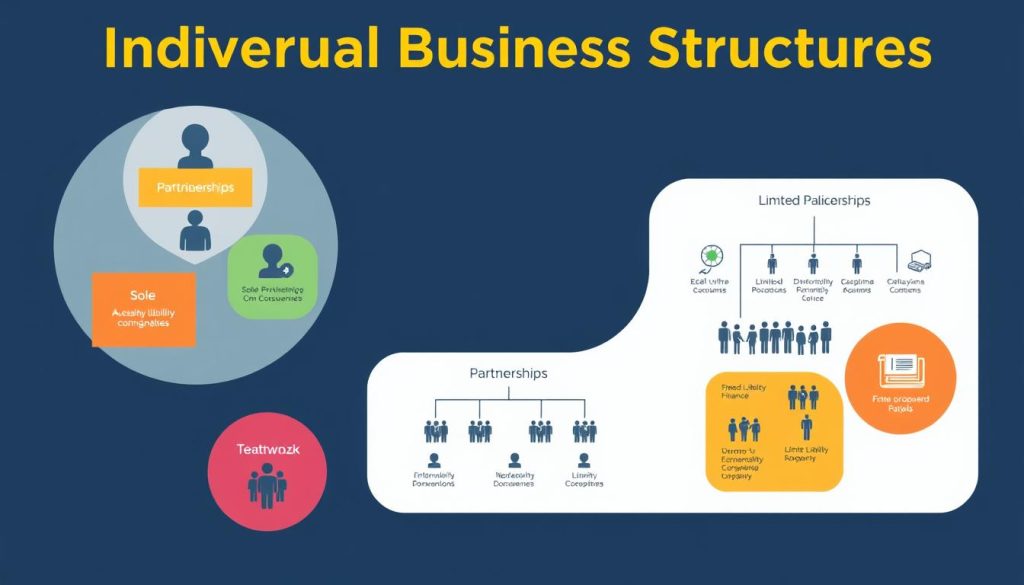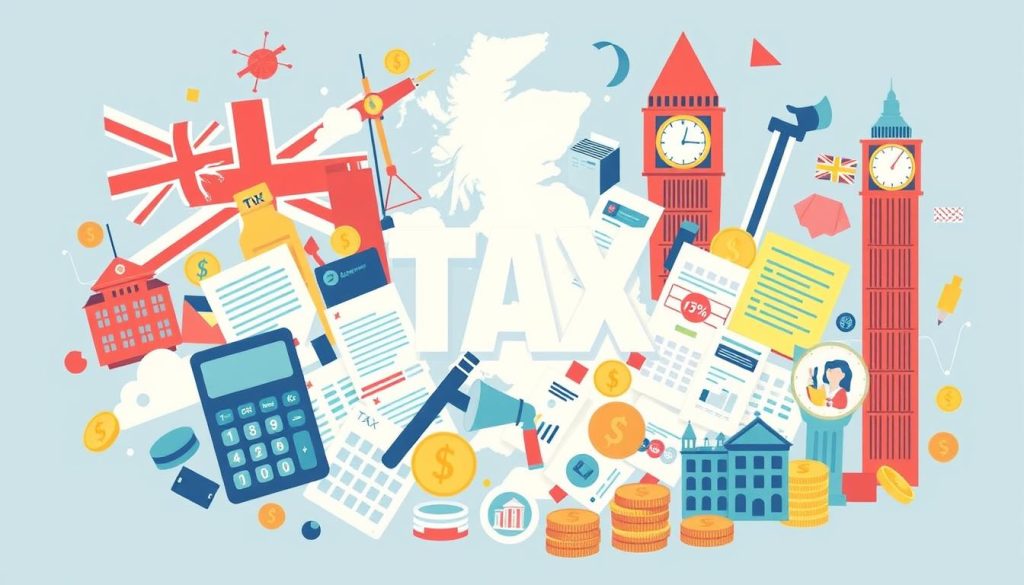In the United Kingdom, an empresa individual, or individual business, is a top choice for many. It lets individuals run their own show, having full control over their work. It’s key to know how individual businesses work to follow UK business laws well. This part will look into what makes individual businesses stand out. It will cover their benefits and downsides, set against the UK’s legal backdrop for solo entrepreneurs.
Key Takeaways
- Individual businesses offer autonomy and simplicity in management.
- Understanding UK business regulations is essential for compliance.
- Solo entrepreneurship can provide tax advantages under certain conditions.
- It’s vital to recognise the legal responsibilities that come with running an individual business.
- There are challenges, such as financial risks, that must be managed carefully.
- Governance frameworks help define the operational limits and obligations of individual businesses.
Understanding Individual Business Structures

Choosing the right business structure is key for entrepreneurs starting out. It’s important to know the differences between various structures. This affects things like taxes and how much you could lose if things go wrong.
The Importance of Choosing the Right Structure
The structure you pick changes how you run your business, your financial and legal duties. Sole traders find it easy to manage and have simpler taxes. On the other hand, limited companies offer protection for your personal assets from business debts.
Partnerships let you share duties and money, but you need strong agreements to avoid disagreements. It’s vital to think about these points for success in the long run.
Comparison with Other Business Forms
Looking at different business structures helps in making a choice. Here’s a quick look at the main differences:
| Business Structure | Advantages | Disadvantages |
|---|---|---|
| Sole Trader | Easy to set up, complete control over the business | Unlimited personal liability, harder to raise capital |
| Partnership | Shared expertise, combined resources | Joint liability, potential for disputes |
| Limited Company | Limited liability, easier to raise finance | Complex setup, more regulatory requirements |
Setting Up an Empresa Individual

Setting up an empresa individual means knowing the steps and documents needed for UK registration. This makes sure you follow the law and can do business safely. It also protects you from losing money.
Step-by-Step Guide to Registration
The first thing is to pick a business name. After choosing, you must register with HM Revenue and Customs (HMRC). This is a key part of registering your business. Then, you need to open a business bank account to keep your money separate from personal funds. This keeps your finances clear and is important for following the law.
- Choose a business name.
- Register with HM Revenue and Customs (HMRC).
- Open a business bank account.
- Obtain any necessary licences or permits.
Necessary Documentation and Compliance
Following local laws is crucial when starting an empresa individual. You’ll need to show your ID, address, and any special licences if needed. Keeping your business accounts up to date is also key for HMRC audits.
Knowing what documents you need makes registering smoother and lowers the chance of legal problems. Being compliant from the start sets a solid base for a UK business success.
Taxation for Individual Businesses in the UK

It’s vital for UK businesses to know their tax duties. This part talks about income tax, National Insurance, and business expenses. These are key parts of the UK tax system.
Understanding Income Tax Obligations
Business owners must follow certain income tax rules. They pay tax on their profits after deducting business expenses. They must file tax returns to show their income and deductions. Knowing the personal allowance helps in figuring out how much tax they owe.
National Insurance Contributions Explained
National Insurance contributions (NICs) are important for solo entrepreneurs. They help fund state pension and healthcare. Self-employed people pay Class 2 and Class 4 NICs on their profits. Keeping an eye on NICs helps manage tax bills.
Identifying Allowable Business Expenses
Claiming business expenses can lower taxable income in the UK. Common expenses include:
- Office supplies
- Business travel costs
- Marketing and advertising expenses
- Professional fees, such as accounting services
Keeping detailed records of these expenses helps in getting more deductions and lowering tax bills.
| Type of Tax | Applicable To | Rate/Range |
|---|---|---|
| Income Tax | Profit from the business | 20% to 45% |
| Class 2 NICs | Self-employed individuals | £3.15 per week |
| Class 4 NICs | Self-employed individuals | 9% on profits over £12,570 |
Legal Considerations for Solo Entrepreneurs

Starting a business on your own means dealing with legal issues that can affect your success. It’s crucial to know about business liability and the need for strong legal agreements. These steps can help protect you from problems in your business.
Understanding Liability Issues
One big worry for solo entrepreneurs is business liability. If you run your business alone, you could lose personal assets if things go wrong or if someone sues you. To avoid this, you can:
- Get enough insurance.
- Keep your personal and business money separate.
- Follow the rules to avoid fines.
These steps help protect your personal life while managing business risks.
Contracts and Agreements
Knowing how important legal agreements are is key for solo entrepreneurs. Good contracts set clear rules with clients, suppliers, and partners. This reduces disagreements and confusion. Important parts of contracts include:
- What everyone’s job is.
- How payments work.
- Steps to solve problems and end agreements.
Having clear legal agreements makes working with others better and keeps you safe. Knowing about contract law helps your business stay strong against any issues.
| Aspect | Implications | Mitigation Strategies |
|---|---|---|
| Business Liability | Unlimited personal liability | Insurance, financial separation |
| Legal Agreements | Potential disputes and misunderstandings | Clear contracts, defined roles |
| Compliance | Fines and legal penalties | Regular audits, expert consultations |
Benefits and Challenges of Running an Individual Business
Running your own business gives you the power to make quick decisions. You have full control over your business, making it more agile. Starting a business on your own also means lower costs, making it easier to enter the market.
But, there are challenges too. Not having limited liability can be scary, as your personal assets could be at risk. Managing everything by yourself can feel isolating and stressful. That’s why building a strong network is key for solo entrepreneurs.
Getting funding is hard for many solo business owners. Without a proven track record, it’s tough to get loans or investments. Good financial planning and smart strategies are crucial. Knowing the challenges helps entrepreneurs overcome them and make the most of their business journey.














